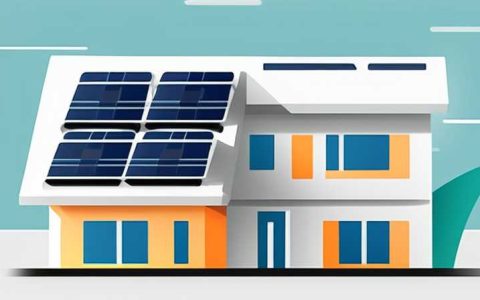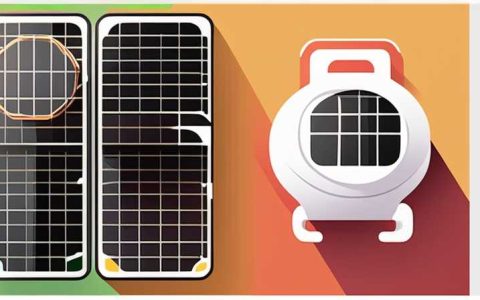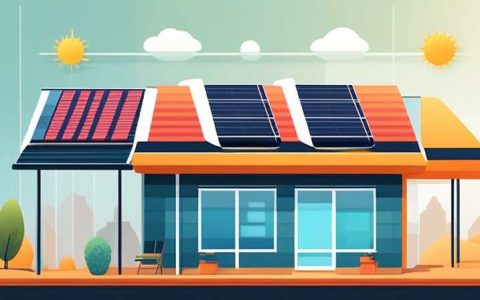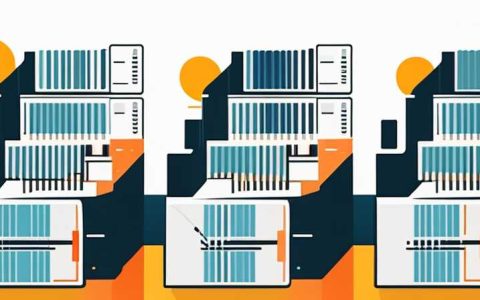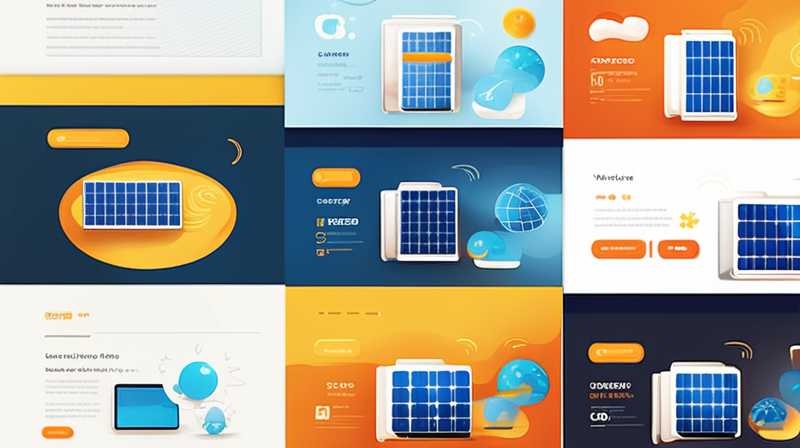
The duration of warranties for photovoltaic solar energy systems typically varies among manufacturers and product types. 1. Most solar panel manufacturers offer warranties that last between 25 and 30 years, covering performance and defects. 2. Inverters, essential components in solar energy systems, generally have shorter warranties, often ranging from 5 to 12 years. 3. Additionally, system installation typically comes with its warranty, lasting around 1 to 10 years, which varies based on the provider. 4. Understanding warranty specifics is crucial for ensuring long-term performance and customer satisfaction. For example, solar panels usually come with performance guarantees stating that they will produce a certain percentage of their rated power at the end of the warranty period. This aspect is vital, as it guarantees the efficiency and monetary return on investment of the solar system over its lifespan.
1. UNDERSTANDING PHOTOVOLTAIC WARRANTIES
In the realm of renewable energy, photovoltaic technology stands out as a front-runner. However, substantial investments raise the importance of understanding warranty terms. The warranty serves as a safeguard, ensuring that the products continue to perform as intended. With the abundance of manufacturers and models available, comprehending the nuances behind warranties forms the backbone of informed decision-making.
Warranties typically can be categorized into two main types: product warranties and performance warranties. Product warranties deal with manufacturing defects and failures that may arise during the expected lifespan of the solar panels and associated components. In contrast, performance warranties assure the maintainability of a certain level of energy output over a specified duration. Familiarity with both types can influence purchasing choices and subsequent user satisfaction.
2. TYPES OF WARRANTIES IN PHOTOVOLTAIC SYSTEMS
Delving deeper into photovoltaic warranties reveals more than just the superficial lengths and returns. Understanding product warranties is essential for grasping the commitment manufacturers have toward quality. Usually, these warranties cover defects in materials and workmanship. If a solar panel fails to operate due to such defects within the warranty period, the manufacturer typically will repair or replace it.
In terms of performance warranties, solar panels generally promise more than just operational functionality; they guarantee the efficiency and output levels. For instance, many manufacturers provide assurances that their panels will operate at at least 80% of their initial capacity after 25 years. Such promises intend to alleviate the concerns surrounding energy yields. This assurance becomes paramount as consumers pivot toward solar solutions for economical long-term energy sourcing.
3. NOTABLE MANUFACTURERS AND THEIR WARRANTY OFFERINGS
When considering photovoltaic systems, the manufacturer significantly impacts warranty terms. Renowned manufacturers provide detailed warranty programs designed to earn consumer trust. Leading brands like SunPower and LG are frequently mentioned in this context.
SunPower offers a remarkable 25-year complete warranty that includes panels and performance. This offering reflects their confidence in product reliability and durability. Such lengthy warranties suggest a solid reputation built on robust research and development. LG, too, competes closely, supplying a 25-year performance warranty alongside a 15-year product warranty, revealing deliberate product guarantee strategies aligned with industry competition. Comparing these diverse offerings enables prospective buyers to assess their options based on security and stability.
4. FACTORS INFLUENCING WARRANTY PERIODS
Diverse factors play a role in determining warranty durations across companies and their products. Initially, the quality of materials and manufacturing processes significantly impact warranty lengths. Premium materials often lead to longer guarantees as they tend to be more resistant to environmental factors. Manufacturers focusing on quality control are more inclined to provide extended warranties as an assurance of reliability.
Environmental factors also contribute substantially. Regions exposed to extreme weather or unusual climate patterns can affect the longevity of solar products. As a result, some manufacturers tailor warranties to fit geographical conditions, ensuring coverage aligns with potential risks linked to specific locales. This customization aids those living in adverse climates to choose systems better suited to withstand for longer periods.
5. INSTALLATION AND ITS IMPACT ON WARRANTY
Installation quality also plays a crucial role in warranty performance. Generally, solar products come with installation warranties that range between one to ten years. A proficient installation guarantees optimal outcomes and mitigates the chances of defects, whereas poor installation may inadvertently void any product warranties. Understanding the interdependence between installation and product warranties is vital. It necessitates choosing qualified professionals with proven track records, which can prevent grievances down the line.
Furthermore, the installation warranty usually covers not just the physical work done but also potential issues arising from installation missteps. For example, a leaky roof due to improper panel sealing might prompt service calls under installation warranty claims. Thus, familiarizing oneself with both product and installation warranty aspects becomes essential for effective photovoltaic system management.
6. COMMON MISCONCEPTIONS ABOUT WARRANTIES
The subject of warranties is also clouded by misconceptions that can lead to confusion. Some consumers erroneously believe that a lengthy warranty equates to superior quality. While longer warranties may suggest manufacturer confidence, they are not definitive measures of quality. Such assumptions can engender misplaced trust and ultimately lead to disappointment.
Equally common is the misunderstanding surrounding the fine print. Many warranties are full of nuanced terms and conditions that can easily become overlooked. Factors like transferability and maintenance responsibilities often complicate perceived guarantees. Thus, thoroughly reviewing the warranty documents enables potential buyers to gain comprehensive insights, allowing them to make educated decisions.
7. THE TRUTH ABOUT WARRANTY CLAIMS
Navigating warranty claims can often be arduous. Consumers may incorrectly presume that exercising a warranty is uncomplicated when, in reality, it could involve documentation, corrective measures, and waiting periods. Persisting through cumbersome claim processes may discourage many who have legitimate claims, inadvertently affecting sentiment toward solar energy systems.
Considering that many manufacturers require specific documentation like installation receipts and maintenance records complicates the process further. This necessity underscores the importance of diligent record-keeping. Engaging directly with customer service channels during this process is vital, as clear communication can facilitate smoother operations and better understanding of expectations.
8. THE FUTURE OF PHOTOVOLTAIC WARRANTIES
Emerging trends denote a rise in customization and evolving practices regarding photovoltaic warranties. The solar industry is shifting towards more consumer-centric warranty models, adapting to changing market demands and competitive tactics. Manufacturers are increasingly recognizing the need for tailored solutions that can address not just product performance, but also encapsulate installation and maintenance components holistically.
As the technology surrounding solar energy continues to evolve, one can expect warranties to adapt accordingly. Innovations aimed at improving efficiency and longevity may lead manufacturers to reassess existing warranty structures. So, stakeholders must stay informed about advances in technology and warranty offerings, ensuring that they align with modern consumer needs and preferences.
FAQs
WHAT ARE COMMON WARRANTY TERMS FOR SOLAR PANELS?
The warranty lengths for solar panels usually range from 25 to 30 years for performance and about 10 to 15 years for product warranties. The distinction between performance and product warranties is crucial. Performance warranties guarantee that the panels will maintain a certain energy output percentage during the warranty’s duration. For example, manufacturers may promise that panels will still produce at least 80% of their rated capacity after the first 25 years. Conversely, product warranties cover defects in materials and workmanship, providing assurance of replacement or repair should issues arise. As such, solar panel buyers should carefully examine both categories to ensure comprehensive coverage of their investment.
HOW DOES INSTALLATION AFFECT WARRANTIES?
The installation quality can highly influence warranty conditions and performance. Many manufacturers’ warranties stipulate that warranties may be rendered void if installation is not performed according to their standards. This consequence underscores the need for consumers to engage reputable professionals for installation. Good installation practices optimize system efficiency and help prolong the effective lifespan of solar panels, thus guarding against failures that could necessitate warranty claims. Furthermore, installation warranties provided by the installation company typically cover potential issues arising from improper installation. Therefore, both product and installation quality is paramount in assuring long-term reliability of solar systems.
WHAT SHOULD I CONSIDER WHEN CHOOSING A SOLAR PROVIDER?
When selecting a solar provider, examining warranty offerings is pivotal. However, beyond warranties, it is essential to critically assess product quality, installation reputation, and after-sales service. Researching manufacturer history in the industry ensures credibility points while inspecting customer reviews can shed light on their performance. Furthermore, transparency regarding warranty conditions and the willingness to provide comprehensive explanations reflects the potential reliability of a provider. Lastly, discussion about available financing options and maintenance services can also influence which provider is best suited for individual needs. Weighing these factors together allows for a balanced evaluation leading to smart investment.
Warranties for photovoltaic solar energy systems are not merely legal agreements; they represent a promise between manufacturers and consumers about the product’s lifespan and performance. Understanding these warranties involves recognizing the differences between product and performance guarantees and choosing quality service for installations. When selected wisely, warranties can offer peace of mind for decades and foster a sense of trust between consumers and manufacturers. This relationship is invaluable as it assures energy production reliability while maximizing returns on investments. By thoroughly researching and comprehending warranty offerings, consumers can better explore their options when opting for renewable energy solutions. In today’s climate, where sustainability matters immensely, opt for solar not just for economic advantages but also for energy independence. In the renewable energy sector, a well-chosen warranty can assure longevity, efficacy, and return on investment while nurturing the overall growth of sustainable practices. With the solar industry continually developing, staying informed on warranty practices can safeguard future investments intelligently.
Original article by NenPower, If reposted, please credit the source: https://nenpower.com/blog/how-long-is-the-warranty-for-photovoltaic-solar-energy/




